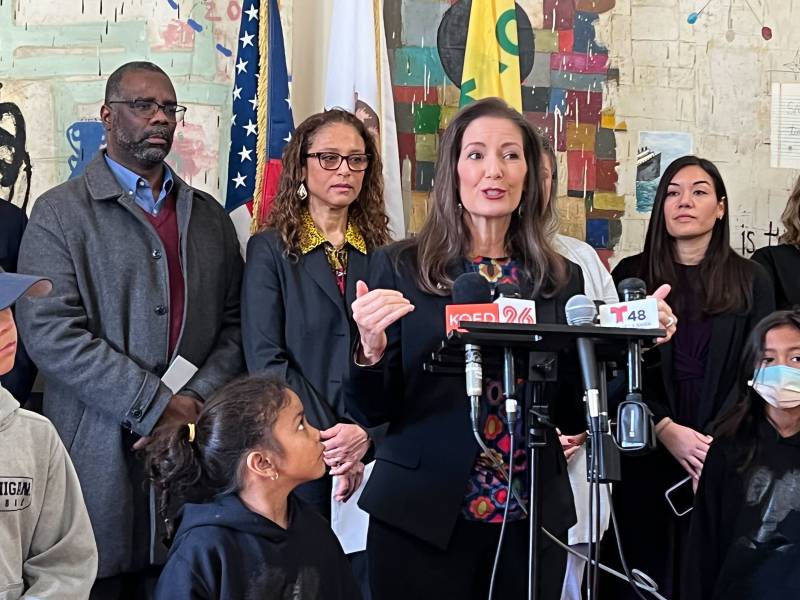Outgoing Oakland Mayor Libby Schaaf touted the expansion of affordable preschool for the city’s children most in need of it, in her final news conference on Wednesday.
The implementation of the Oakland Children’s Initiative comes after the city won a court battle over Measure AA, the parcel tax measure approved by voters in 2018 to fund early education and college readiness.
The measure authorizes the city to collect $198 a year in parcel tax on single-family homes, and $135 a year per unit of each multiunit residence, totaling about $35 million annually over the next 30 years. About two-thirds of the funds will go toward early childhood education and the other third toward college tuition assistance.
Schaaf said she hopes the long-term investment will make an impact for generations to come.
“To parents, I hope you each feel a burden lifted off your shoulders, that preschool will be affordable for all children in Oakland, that college will be accessible and affordable … this is something you should expect from your government and, more importantly, from your community,” she said.
Jorge Lerma, chair of a commission in charge of providing oversight for the distribution of funds, said the initiative will first target the children who need it most before expanding the preschool program to all of Oakland’s young children.

